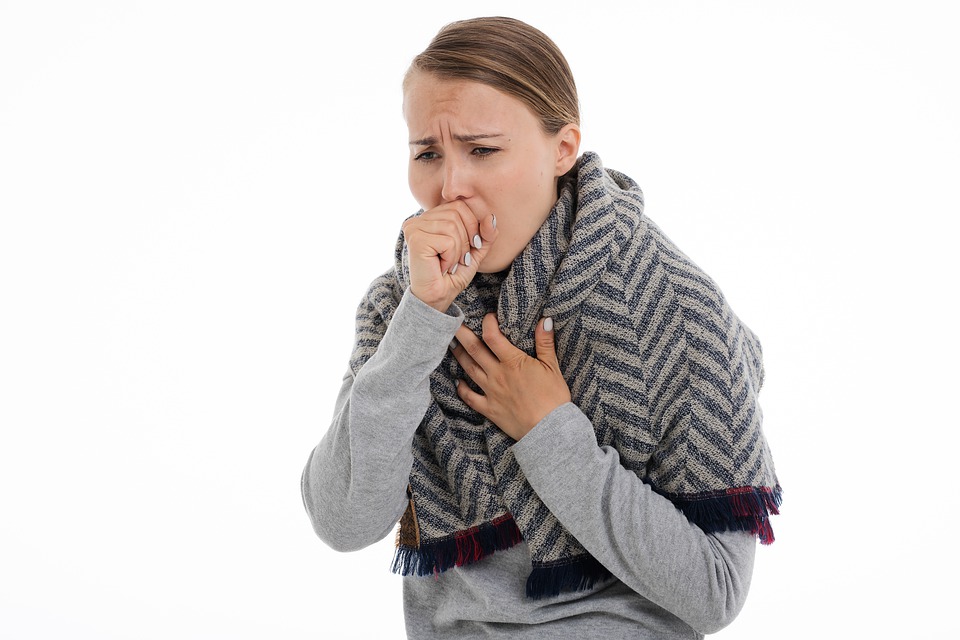Lung cancer is one of the diseases that are affecting many people in the world today. One of the symptoms of this disease can be found in a person’s coughing behavior.
Prevention is better than the cure, and if treatment is to be successful, then spotting the early symptoms is important. Express reports that a symptom of lung cancer is coughing up blood, or phlegm with blood. Other symptoms of the disease include a persistent cough, an unusual change in coughing after a long time, chest or shoulder pain, fatigue, weight loss, loss of appetite, and shortness of breath.
Another symptom of lung cancer is a chest infection that seems to persist, or suffering from lung infections like bronchitis. These symptoms do not usually make themselves known until later on. Unfortunately, later on, when these symptoms do appear, it would mean that the cancer has already progressed or spread. Muscle wasting, as well as facial swelling and finger clubbing, are other, less common symptoms of the disease but are just as concerning.
It is important to keep in mind that experiencing one of these symptoms could be attributed to other conditions and not necessarily lung cancer. This is why consulting a doctor is important to get a proper diagnosis and treatment.
There is no definite cause for lung cancer as there are many factors that could contribute to a person getting a high or low risk of developing the disease. Heavy smokers, or smokers in general, have a high risk of developing lung cancer and a big portion of lung cancer patients are smokers. Those who are constantly exposed to pollution or carcinogenic substances like radon and asbestos are also at risk of the disease.
Non-smokers are not immune to lung cancer, as the secondhand smoke that they may inhale can also put them at risk. Other factors that would increase or give a person a low risk of developing lung cancer are family history - if any family members have had lung cancer or have died of lung cancer. Having a history of suffering from respiratory diseases can also put a person at risk.



 RFK Jr. Overhauls Federal Autism Panel, Sparking Medical Community Backlash
RFK Jr. Overhauls Federal Autism Panel, Sparking Medical Community Backlash  TrumpRx.gov Highlights GLP-1 Drug Discounts but Offers Limited Savings for Most Americans
TrumpRx.gov Highlights GLP-1 Drug Discounts but Offers Limited Savings for Most Americans  Vanda Pharmaceuticals Wins FDA Approval for New Motion Sickness Drug After Four Decades
Vanda Pharmaceuticals Wins FDA Approval for New Motion Sickness Drug After Four Decades  Sanofi Gains China Approval for Myqorzo and Redemplo, Strengthening Rare Disease Portfolio
Sanofi Gains China Approval for Myqorzo and Redemplo, Strengthening Rare Disease Portfolio  China to Add Eli Lilly’s Mounjaro to National Health Insurance in 2025
China to Add Eli Lilly’s Mounjaro to National Health Insurance in 2025  California Jury Awards $40 Million in Johnson & Johnson Talc Cancer Lawsuit
California Jury Awards $40 Million in Johnson & Johnson Talc Cancer Lawsuit  Royalty Pharma Stock Rises After Acquiring Full Evrysdi Royalty Rights from PTC Therapeutics
Royalty Pharma Stock Rises After Acquiring Full Evrysdi Royalty Rights from PTC Therapeutics  Novo Nordisk and Eli Lilly Cut Obesity Drug Prices in China as Competition Intensifies
Novo Nordisk and Eli Lilly Cut Obesity Drug Prices in China as Competition Intensifies  Novo Nordisk Launches Once-Daily Wegovy Pill in U.S. at Competitive Pricing
Novo Nordisk Launches Once-Daily Wegovy Pill in U.S. at Competitive Pricing  Trump Backs Review of U.S. Childhood Vaccine Schedule After Hepatitis B Policy Change
Trump Backs Review of U.S. Childhood Vaccine Schedule After Hepatitis B Policy Change  AstraZeneca’s LATIFY Phase III Trial of Ceralasertib Misses Primary Endpoint in Lung Cancer Study
AstraZeneca’s LATIFY Phase III Trial of Ceralasertib Misses Primary Endpoint in Lung Cancer Study 































